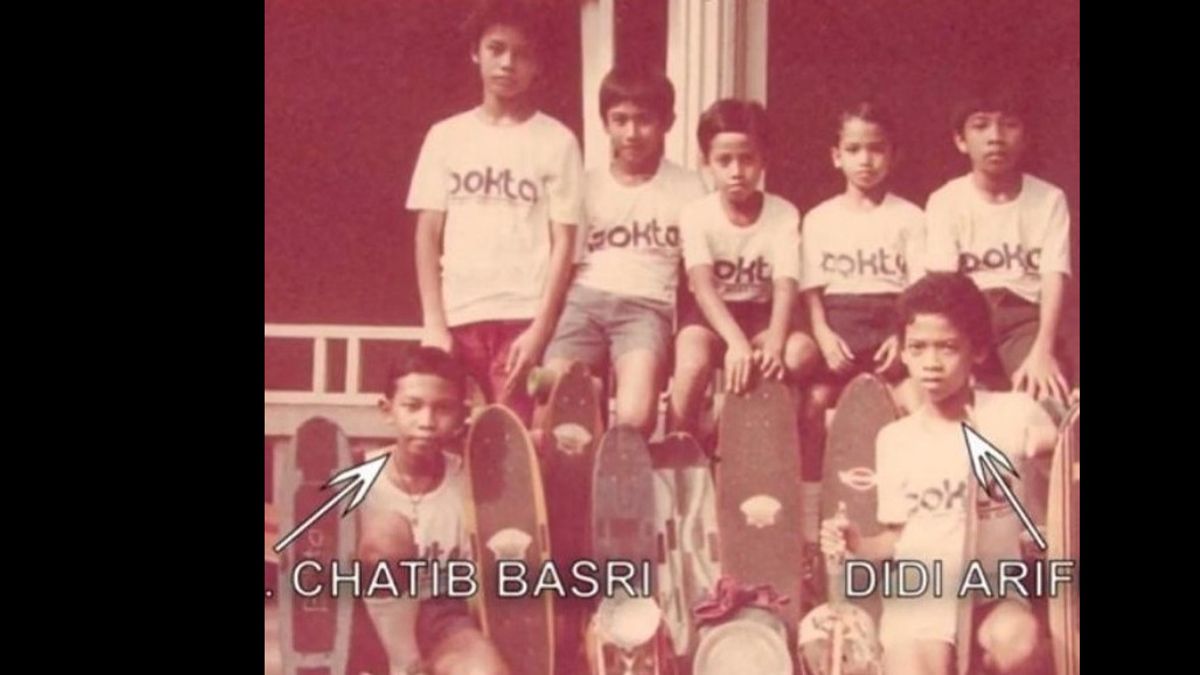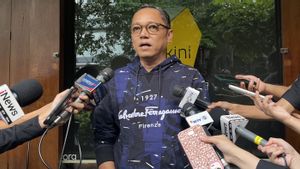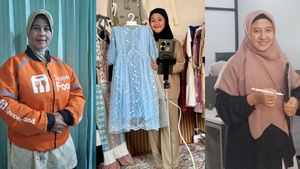JAKARTA - In fact, skateboarding or recreational sports were once part of the life of former finance minister Chatib Basri. The story was told by Dede, Chatib's nickname, to the public via his personal Instagram page.
In the upload, he tells how the early development of skateboarding in Indonesia was. At that time, he and his colleagues felt lucky to be the very first part of the development of this sport in the country.
Together with Didi, his close friend at that time, Dede recalled the condition of the national 'skateboarding world' in the mid-1970s.
"Didi talked about how skateboarding began in Indonesia in the mid to late 70s," he said at @chatibbasri as quoted by VOI on Saturday, March 6.
"We start from fun, start learning how to play properly," he added.
Feeling fit, Dede then tried to pursue a sport that is synonymous with urbanites. Until one moment he decided to test his skating balls by pitting his talents against skaters (a term for skateboarders) in an official event.
"We also started participating in competitions and winning championships," said Dede,
During its development, Dede felt that he could no longer keep up with the sport's developments. Then, at one point he chose to retire early from the fun that accompanied his daily life as a child.
“I hung boards in the early 1980s. Didi continues as a skateboarder. I am not as brave, persevering, talented, and as good as Didi, ”he said.
Finally, some 40 years after Dede left skate park, he tries to recall the fond memories of sliding the balance board in the same way that world skateboard legend Tony Hawk started his first amateur career.
"So I just reminisce about the past," he concluded.
Monetization of skateboarding in IndonesiaIn 1996, Craig Huddleston opened a shop. The shop he named City Surf. Through City Surf, Huddleston transmits the energy of skateboarding. Not only as a sport but also a lifestyle. That's where skateboarding began to spread as a lifestyle.
The mid-1990s saw the rapid spread of skateboarding culture. At that time there were many skateboard or skateshop shops, even without a valid license.
City Surf stands at the heart of that cultural growth. Two years since its founding, 1998 to be precise, City Surf held 14 local scale skateboarding championships.
The championship was followed by a minimal number of participants. There were two classes that were competed at that time: street course and mini ramp. Regardless of the rapid growth, skateboarding culture at that time was still in the minority. Despite the minimum number of participants, the championship created by City Surf at that time succeeded in broadening the exposure of skateboarding.
The English, Chinese, Japanese, Arabic, and French versions are automatically generated by the AI. So there may still be inaccuracies in translating, please always see Indonesian as our main language. (system supported by DigitalSiber.id)










